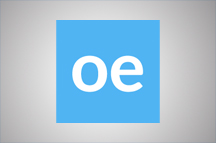 As the referendum campaign gets under way there have been several comments suggesting that a Brexit would make things tricky in Northern Ireland, notably the potential issues around the border with the Republic. Open Europe's Raoul Ruparel suggests how these issues could be managed.
As the referendum campaign gets under way there have been several comments suggesting that a Brexit would make things tricky in Northern Ireland, notably the potential issues around the border with the Republic. Open Europe's Raoul Ruparel suggests how these issues could be managed.
We have highlighted before that a Brexit would present some serious economic challenges for Ireland. However, equally as challenging will be some of the political issues, which would also affect Northern Ireland, notably the potential requirement to establish a border – both in terms of the movement of people and goods/services.
This has already come up in the campaign with the UK Government highlighting in its document on the process for leaving the EU that Northern Ireland “would be confronted with difficult issues about the relationship with Ireland”, citing the potential establishment of borders.
On the other side, Northern Ireland Secretary Theresa Villiers has pushed back saying, "It’s perfectly possible to maintain that free movement with Irish citizens. After all we give them privileges in the UK which we accord to no other EU citizens, like the right to vote in our elections."
There is no doubt that Brexit would throw up a number of thorny issues in this area which should not be dismissed lightly. A poll by Lucid Talk for the Belfast Telegraph has people in Northern Ireland backing remaining in the EU at 55%, with those who want to leave at 29.5% and undecided voters at 15%. What is particularly noticeable is how split Northern Irish voters are along party lines. The poll also found that 63.6% of those who vote for unionist parties back leaving the EU, with 20% wanting to stay and 16% undecided. However, 74% of those who support nationalist parties want to stay in the EU, with those wanting to leave at 10.5% and 14.8% yet to decide. The big split along party lines highlights how a vote for Brexit could become an incredibly divisive issue.

It was also an issue which Former Taoiseach John Bruton warned of in our recent EU wargames. However, as with most things in this debate, the impact of Brexit would depend to a large extent on what measures are taken afterwards. Furthermore, we always try and look at these issues from a pragmatic perspective. In our report on the wargames we laid out some thoughts for how these issues in Ireland might be managed in the event of a Brexit, some of which had been touched upon during the game by one of the British players, former Chancellor Lord Lamont.
Would a customs border be needed between Ireland and Northern Ireland?
Given that the UK is very unlikely to stay in the EU’s customs union (the Turkish option), the short answer is ‘yes’. However, the impact of such a border would depend on the exact relationship between the EU and the UK. A border need not necessarily be a major problem and there are examples of where this situation is made to work elsewhere (albeit with a less difficult political situation). Sweden and Norway have a similar issue – a customs border is needed given that one is in the EU and the other is not, though there is no border for people since both are in the passport-free Schengen zone. This could prove a useful template (i.e. there could be a customs border between the North and the Republic but the UK and Ireland could remain within the same Common Travel Area, as they are now and were before they joined the EU). Customs checks are sporadic along the Norway/Sweden border. Cars are not usually forced to stop. Both countries emphasise checks against other countries, and trust each other to enforce the rules properly at their other borders (something one might expect the UK and Ireland to be able to agree on). If tighter checks were needed they may prove less controversial at certain focal points – airports and ports around the island – rather than along the Northern Irish/Republic border itself (though this isn’t without difficulty since it would essentially mean checks between Northern Ireland and the rest of the UK).
How could EU free movement fit with the UK/Ireland passport zone?
There have been suggestions that maintaining the Common Travel Area would be incompatible with Ireland remaining part of EU’s free movement rules, since EU citizens could simply move to the UK via Ireland (this presumes the UK would no longer accept unrestricted free movement from the EU). This appears to be somewhat of a red herring. It is very likely that the UK will continue to allow visa free travel with the EU. Therefore, EU citizens will be free to visit the UK on holiday or to conduct some cross-border business. In reality, the enforcement of ensuring people do not over stay cannot be at the border but via other mechanisms such as regulating access to social security and the job market. These are the things that would no longer be automatically available to EU citizens if the UK was no longer subject to free movement. But there is no real need for any greater border enforcement (though data collection and tracking of entrants should be improved). Border checks from a purely security perspective are already in place since the UK and Ireland are not in Schengen and it seems likely the UK could continue to trust Ireland to enforce the border of the Common Travel Area from a security perspective. The effectiveness of such checks would depend on bilateral cooperation.
This article was originally published on Open Europe Blog.














